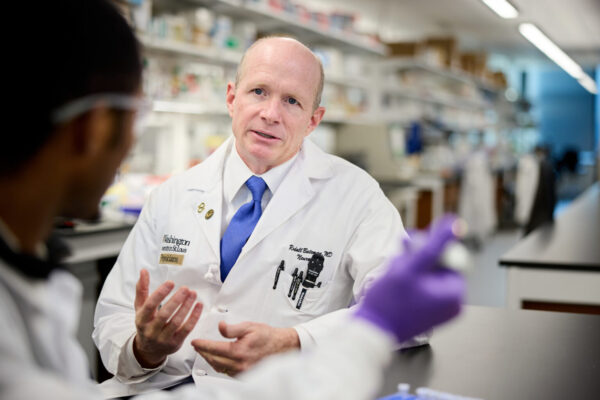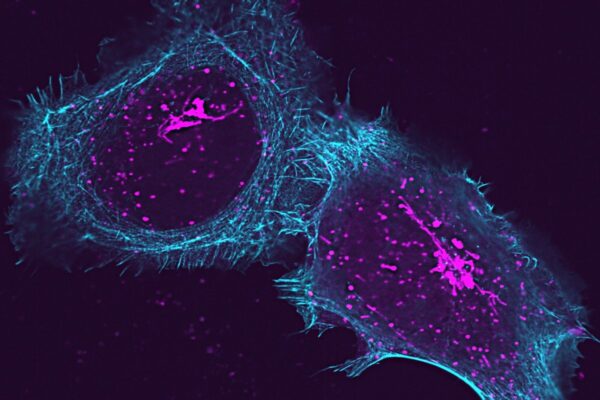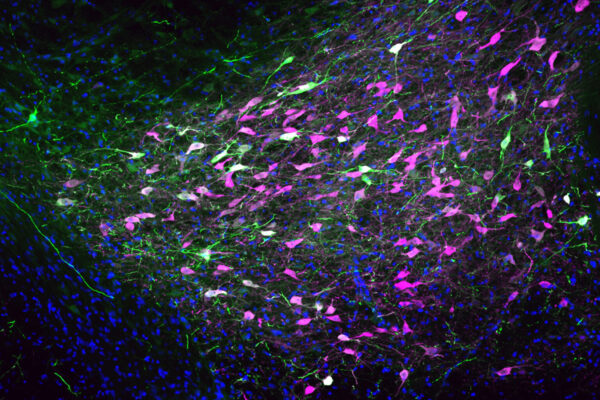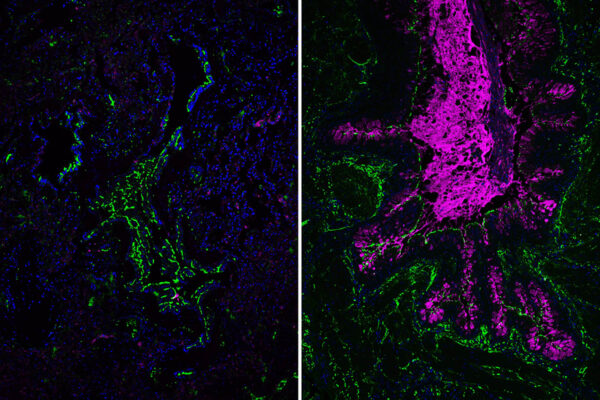Anti-amyloid drug shows signs of preventing Alzheimer’s dementia
A clinical trial among people destined to develop early-onset Alzheimer’s disease and led by WashU Medicine researchers shows eliminating amyloid from the brain may prevent cognitive symptoms.
Faculty selected for global health leadership program
Jessica Backman-Levy (left), at the Brown School, and Beryne Odeny, MD, PhD, at the School of Medicine, have been selected to participate in a yearlong program aimed at advancing women into senior leadership positions in global health.
Jansky/Bander Family Fund supports movement disorders fellowships, brain bank
The Jansky/Bander Family Fund, a generous commitment of $1.1 million over five years, has been established to advance critical initiatives within the Section of Movement Disorders in the Department of Neurology at WashU Medicine.
Researchers find missing link in autoimmune disorder
Scientists at WashU Medicine have identified a key component to launching immune activity and overactivity, providing a potential therapeutic target for autoimmune diseases.
William D. Owens, MD, professor emeritus of anesthesiology, 85
William D. Owens, MD, a highly regarded professor emeritus of anesthesiology and former head of the Department of Anesthesiology at Washington University School of Medicine, died of cancer Jan. 3.
Female sex hormone protects against opioid misuse, rat study finds
According to a new study by WashU Medicine researchers, male and female rats with a chronic pain condition release different amounts of dopamine when given fentanyl because of sex hormones. The findings might help explain why men have higher rates of opioid use and overdose deaths.
Good parenting helps, but has limits under major deprivation
Researchers at Washington University find high social disadvantage may limit the benefits of parenting on language and cognition.
Genetic analysis explains rare disease severity, points to possible treatment
Researchers at WashU Medicine have uncovered why some patients with a rare genetic disorder called primary ciliary dyskinesia have worse lung problems than others with the same disorder.
$4.5 million supports pathbreaking neuroimmunology research
WashU Medicine has received a three-year $4.5 million grant from the Carol and Gene Ludwig Family Foundation, with the ultimate goal of developing new treatments for Alzheimer’s disease.
Two WashU Medicine projects compete in STAT Madness
Online voting is open for the top biomedical innovation or discovery of 2024. The first round ends early Monday, March 10.
View More Stories









